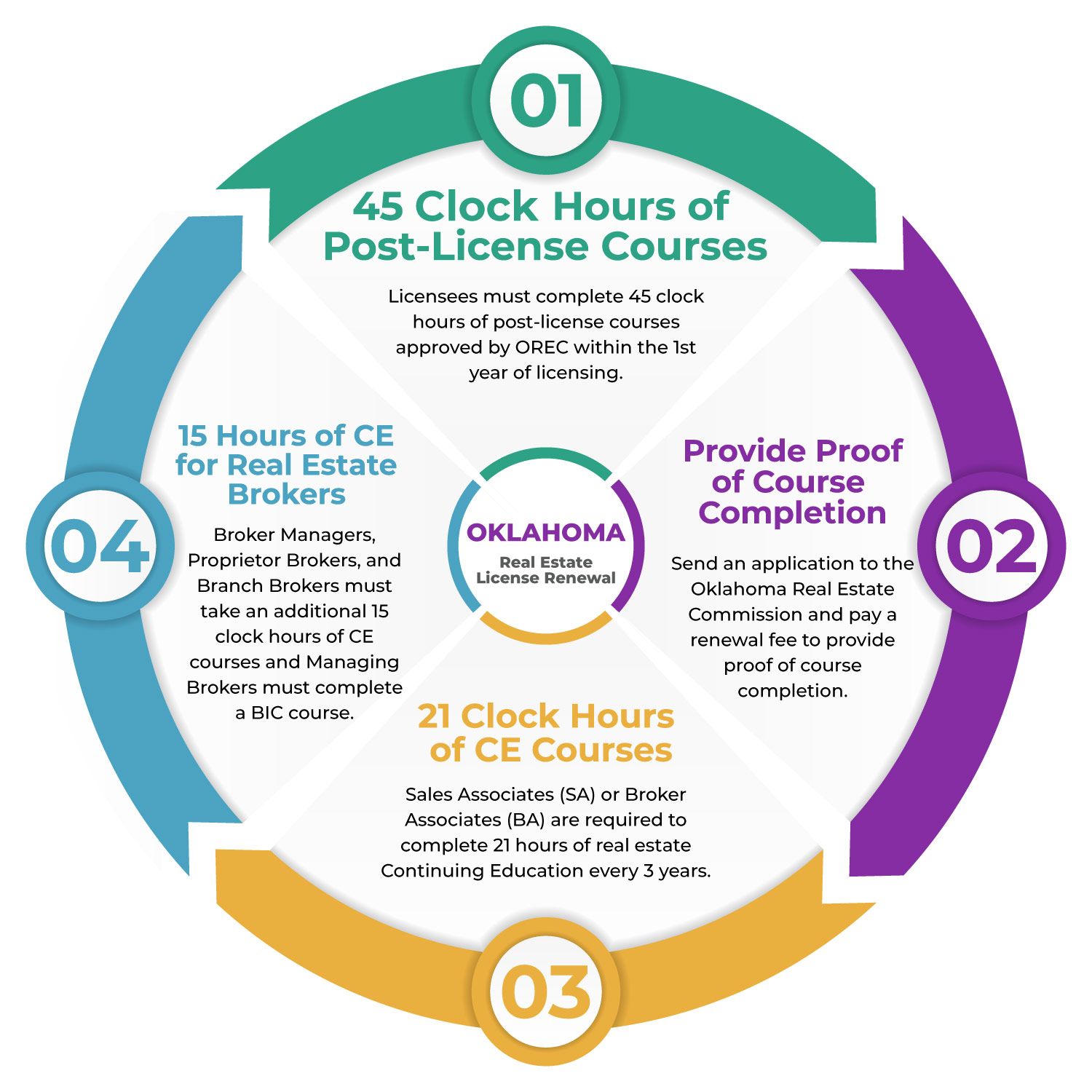
To be eligible for the Washington real property licensing exam, you will need to bring two forms ID. Each form should include your name, signature, current photograph, and date. Remember that the results of this exam are only valid for a year. So you must apply to get your broker's license. You will be given instructions to retake the exam if you fail. Once you have passed the exam, you can submit your official application.
Pre-licensing education requirements
Washington law requires that real estate agents who wish to become licensed must complete at least 90 hours in pre-licensing education before they can take their exam. This 90-hour course includes courses in real estate contracts, principles, finance, and many other topics. The online courses provide access to multiple modules which cover different topics. Study guides and optional exams will be provided to students in preparation for the real estate exam.
Washington State Department of Licensing and Regulation requires each applicant to pass background checks before they can take the realty exam. To take the exam, candidates must register with the state's licensing testing agency. They must also prove that they have completed the course. They must pass a broker’s exam and answer questions about legal background. They must also submit their fingerprints to a background check once every six years. This information is available to applicants who have received pre-licensing education from another state.

Exam content
The exam for WA real estate licensing consists of two parts: the national and the state-specific portion. Interspersed are the questions from each section. Five to ten questions from each section will be considered experimental. They are not scored. Both sections are multiple-choice and take 3.5 hours. A scaled score of 70 or more is required to pass the test. The test content is generally comprehensive and covers all aspects state's real property laws, contracts, as well as procedures.
The course is similar to the exam, but covers some of the same topics. Real estate math basics and formulas to solve common real estate calculations will be required. It is important to practice the test frequently as subjects are constantly changing. Practice tests are a good idea to make sure you know the format well and note your weak spots. A few math formulas and facts from your pre-licensing course should be memorized.
Cost
The cost of wa real estate licensing varies from state to state, and varies with the type of business you run. The cost of a salesperson license will be less than that of a broker license. This is because the former requires additional education and fees. Although licensing real estate can be expensive, starting from scratch can save you money. You can create a business plan and identify your target clients to reduce the cost. There are numerous marketing options available such as social media campaigns, digital ads, and print ads.
The cost of prelicensing coursework varies depending on the place you choose. It can cost from $260 up to $500. Once you have completed the required course, you'll have to pass the state licensing exam. MLS membership costs an additional $50-$60. The cost of MLS membership varies by region. To find the actual cost, you will need to check the fees in your area. In addition, you will likely need to pay a small fee to become a member of the National Association of Realtors, which requires a separate fee.

Online options
Choosing an online school for your Washington real estate licensing requirements can be an advantageous decision. Online schools are more flexible than traditional schools. You can work at your own pace and access the information you need. This will allow you to complete your education in as little as possible. Additionally, instructors will provide tutor support and exam prep assistance. Exam Preparation Plus allows you to purchase an upgrade for your course. This includes a real e-book, live exam cramer series and Q&A sessions.
Kaplan offers five WA prelicensing options. Depending on your needs, you can choose between the Value and Premium packages. These packages include three online courses that require fewer than nine credit hours each. These packages allow you to finish the coursework whenever it suits you best. You can even resume from where your last course was if you wish. Kaplan's courses have been developed by real estate professionals who are experts in current and relevant topics.
FAQ
What should I be looking for in a mortgage agent?
People who aren't eligible for traditional mortgages can be helped by a mortgage broker. They work with a variety of lenders to find the best deal. Some brokers charge a fee for this service. Others provide free services.
What is reverse mortgage?
A reverse mortgage allows you to borrow money from your house without having to sell any of the equity. You can draw money from your home equity, while you live in the property. There are two types of reverse mortgages: the government-insured FHA and the conventional. Conventional reverse mortgages require you to repay the loan amount plus an origination charge. FHA insurance covers repayments.
How do I calculate my interest rate?
Interest rates change daily based on market conditions. The average interest rate over the past week was 4.39%. To calculate your interest rate, multiply the number of years you will be financing by the interest rate. If you finance $200,000 for 20 years at 5% annually, your interest rate would be 0.05 x 20 1.1%. This equals ten basis point.
Is it possible to sell a house fast?
It might be possible to sell your house quickly, if your goal is to move out within the next few month. There are some things to remember before you do this. You must first find a buyer to negotiate a contract. You must prepare your home for sale. Third, you must advertise your property. Finally, you should accept any offers made to your property.
Statistics
- It's possible to get approved for an FHA loan with a credit score as low as 580 and a down payment of 3.5% or a credit score as low as 500 and a 10% down payment.5 Specialty mortgage loans are loans that don't fit into the conventional or FHA loan categories. (investopedia.com)
- 10 years ago, homeownership was nearly 70%. (fortunebuilders.com)
- Some experts hypothesize that rates will hit five percent by the second half of 2018, but there has been no official confirmation one way or the other. (fortunebuilders.com)
- Private mortgage insurance may be required for conventional loans when the borrower puts less than 20% down.4 FHA loans are mortgage loans issued by private lenders and backed by the federal government. (investopedia.com)
- This means that all of your housing-related expenses each month do not exceed 43% of your monthly income. (fortunebuilders.com)
External Links
How To
How to purchase a mobile home
Mobile homes are houses constructed on wheels and towed behind a vehicle. Mobile homes are popular since World War II. They were originally used by soldiers who lost their homes during wartime. People who live far from the city can also use mobile homes. Mobile homes come in many styles and sizes. Some houses have small footprints, while others can house multiple families. There are even some tiny ones designed just for pets!
There are two main types mobile homes. The first type of mobile home is manufactured in factories. Workers then assemble it piece by piece. This process takes place before delivery to the customer. The other option is to construct your own mobile home. Decide the size and features you require. You will need to make sure you have the right materials for building the house. To build your new home, you will need permits.
You should consider these three points when you are looking for a mobile residence. You might want to consider a larger floor area if you don't have access to a garage. A larger living space is a good option if you plan to move in to your home immediately. You'll also want to inspect the trailer. It could lead to problems in the future if any of the frames is damaged.
You should determine how much money you are willing to spend before you buy a mobile home. It's important to compare prices among various manufacturers and models. It is important to inspect the condition of trailers. Many dealerships offer financing options but remember that interest rates vary greatly depending on the lender.
An alternative to buying a mobile residence is renting one. Renting allows the freedom to test drive one model before you commit. Renting isn’t cheap. The average renter pays around $300 per monthly.